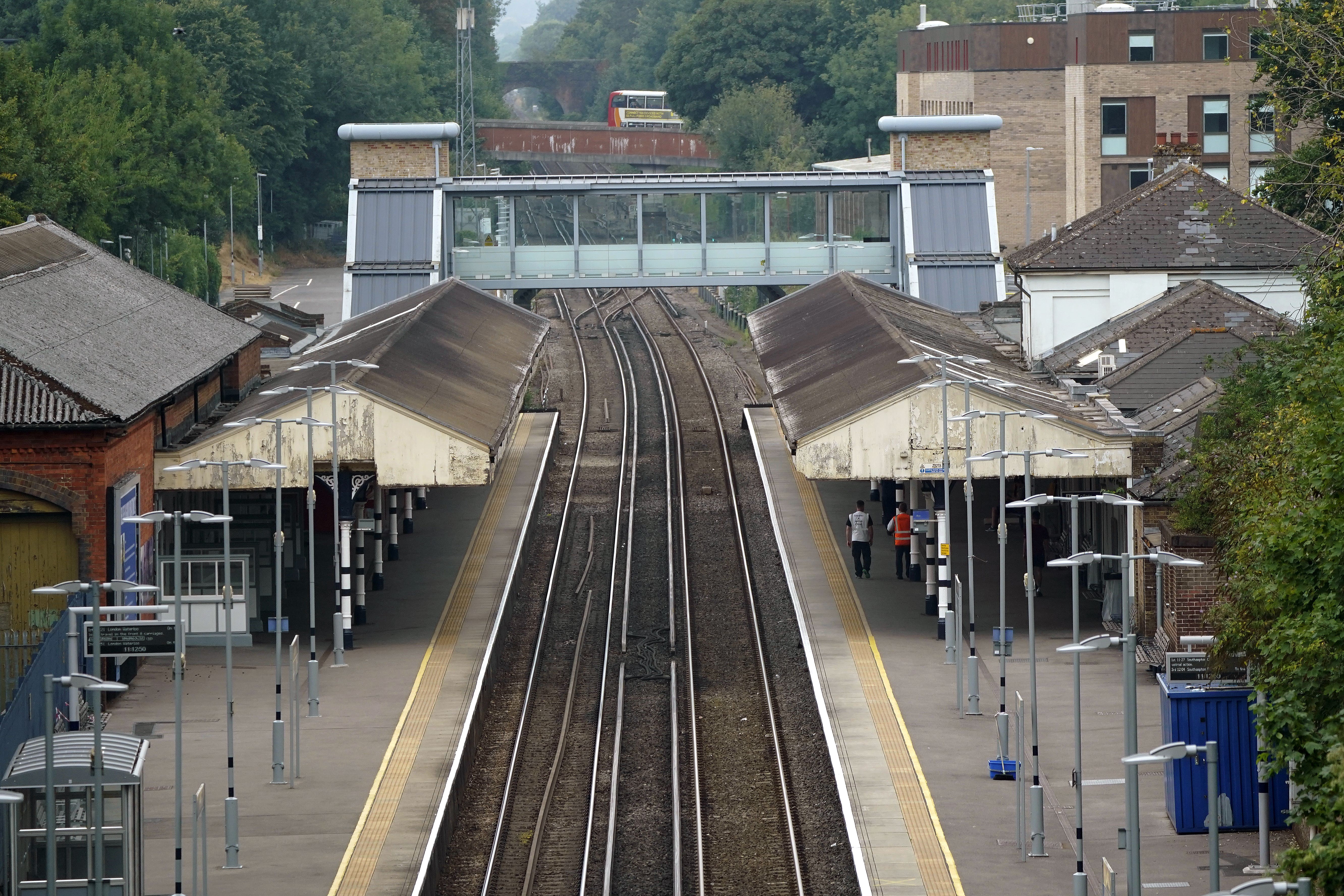Transport Secretary hails ‘constructive’ meeting over rail dispute
Mark Harper insisted his own role was to facilitate a deal rather than negotiate one.

Your support helps us to tell the story
From reproductive rights to climate change to Big Tech, The Independent is on the ground when the story is developing. Whether it's investigating the financials of Elon Musk's pro-Trump PAC or producing our latest documentary, 'The A Word', which shines a light on the American women fighting for reproductive rights, we know how important it is to parse out the facts from the messaging.
At such a critical moment in US history, we need reporters on the ground. Your donation allows us to keep sending journalists to speak to both sides of the story.
The Independent is trusted by Americans across the entire political spectrum. And unlike many other quality news outlets, we choose not to lock Americans out of our reporting and analysis with paywalls. We believe quality journalism should be available to everyone, paid for by those who can afford it.
Your support makes all the difference.The Transport Secretary has made it clear his role is to “facilitate and support” a deal in the long-running rail dispute rather than get involved in negotiations.
Mark Harper wrote to the leader of the Rail, Maritime and Transport union (RMT) following a meeting last week which the minister described as “constructive and positive”.
He wrote: “We both agree the industrial dispute on the railways has gone on too long.
“It’s bad for your members, losing out on pay and overtime, bad for businesses who depend on trains to bring them goods and customers and bad for people across our country who depend on the railways.
“Worse, disruption pushes more and more people away from using the railways, some of whom will never come back.
“We both want a long-term sustainable railway that provides both great service and rewarding jobs.
“Every day’s industrial action makes that harder to deliver.”
Mr Harper said there was a way forward to meet everyone’s needs, adding: “By modernising working practices, we can deliver the savings that lower post-Covid passenger numbers require, restore financial sustainability and not place an unfair burden on taxpayers.
“My role is to facilitate and support, not negotiate.
“Negotiations will continue between trade unions and employers, but I can see scope for agreement.”
He said better information sharing between the rail minister, trade unions and those leading the negotiations on behalf of the employers can speed up the process.
“We will soon convene a further meeting to help advance, with the good faith of all parties, settlement discussions and progress in this dispute.
“I want to work with you and employers in good faith to help resolve these long-standing issues, and help the employers and you reach a resolution that is fair to all.
“I would hope this will lead to progress that will allow you to call off industrial action.”
Members of the RMT are due to stage a fresh wave of strikes next month at Network Rail and 14 train operators which will cripple services.
Mr Harper has also met leaders of the Transport Salaried Staffs’ Association and is due to hold talks with officials from the train drivers union Aslef later this week.
Disputes over pay, jobs and conditions remain deadlocked despite months of talks and industrial action.
The Transport Salaried Staffs Association announced it will re-ballot rail workers for strike action in a further three train operating companies in its ongoing dispute over pay, jobs and conditions.
The union is balloting several hundred operational, station, control and management staff for strike action and action short of strike at Great Western Railway, Greater Anglia and c2c, with results due just before Christmas.
This follows an announcement of re-ballots in Network Rail and seven other train operators.
Trade union legislation requires unions to ballot every six months.
Be in no doubt, we stand ready to call further strike action unless an offer is tabled
TSSA called off industrial action when an invite to talks with the Rail Delivery Group was made earlier this month, saying that while progress has been made, no offer has yet been tabled.
Nadine Rae, TSSA organising director, said: “Re-balloting is vital to keep the pressure on employers for a deal.
“The incredible determination and strength of our members is what dragged employers back to the negotiating table, and we hope that this re-ballot will focus minds on achieving a settlement without the need for further action.
“But be in no doubt, we stand ready to call further strike action unless an offer is tabled.
“The issues our members across the railways face haven’t changed – they deserve job security, protection of their terms and conditions, and a pay rise.
“No one wants to be striking in the run up to Christmas or starting the new year in dispute, but with inflation rocketing, and real take-home pay worth less, employers and government must realise that workers across our railways will not back down. A decent offer must be made.”
Talks with the RDG have been held for three weeks and further talks are scheduled for this week.